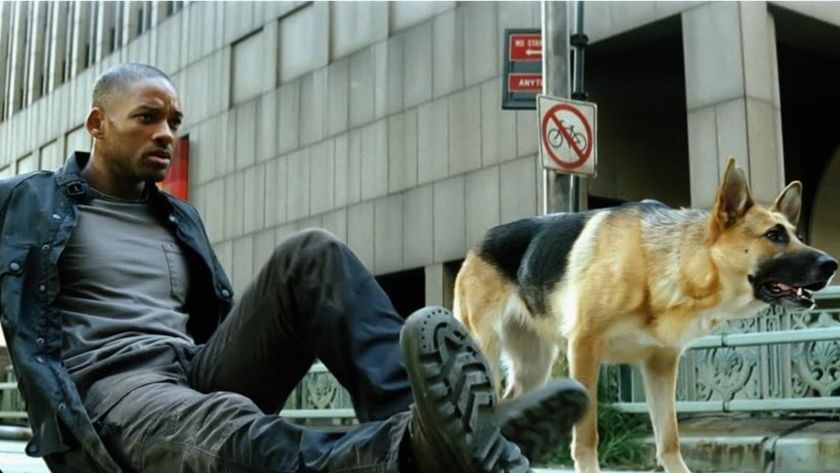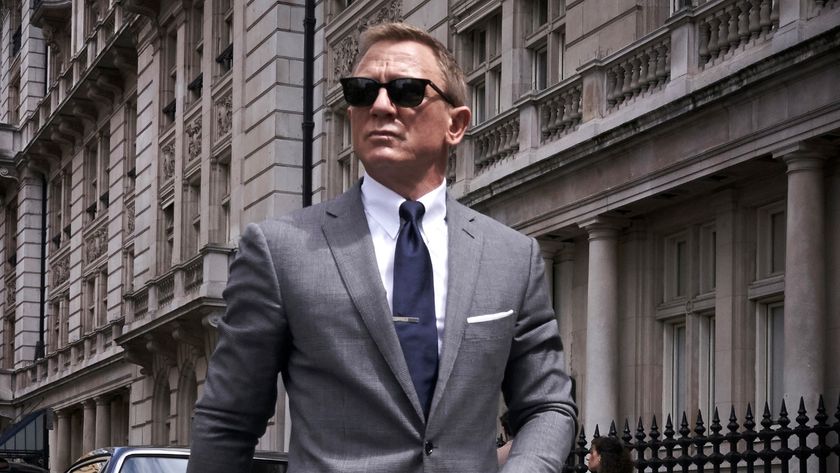"Like Indiana Jones on acid" - The Overlord cast on the movie's secretive origins (and whether it was ever a Cloverfield spin-off)
J.J. Abrams’ top-secret Overlord sees soldiers parachute down a rabbit hole of unspeakable genre horrors
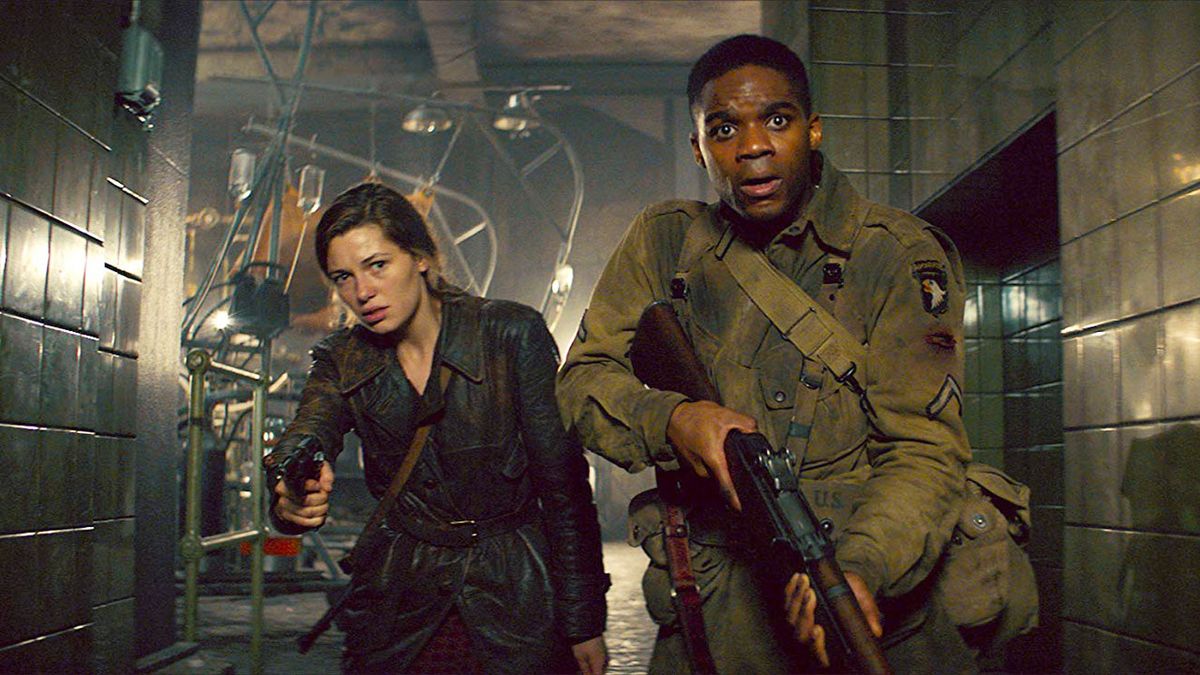
The first thing you need to know is that Overlord is not a Cloverfield movie. Such were the whispers when motes of information first started to drift around the internet, and the scuttlebutt only intensified when the first trailer dropped in July.
"No, it’s not a Cloverfield movie, and it never started off as a Cloverfield movie,” says Australian director Julius Avery, on the phone from his home in Queensland, where he’s relaxing after a hectic couple of years. “This is something completely outside of that franchise. I can’t speak for what people think, but maybe because it had the Bad Robot logo on it, and the Cloverfield franchise is really super-cool. Why not think everything is a Cloverfield movie?”
Producer J.J. Abrams is even more to the point. Calling from the set of Star Wars 9, semi-shouting to make himself heard over the yells and clatters of the crew, he states, “It was always an original pitch from Billy Ray called Overlord.”
Their careful phrasing doesn’t altogether quash the possibility that perhaps, not at the start, not at the end, but at some point during Overlord’s long gestation period, it was discussed whether it could be migrated into the Cloverfield universe. But even if that was never the case, it’s not hard to see why the whispers started. As the trailer makes clear, this is a bizarre story shrouded in suspense and mystery, as what begins as a seemingly straightforward men-on-a-mission World War 2 drama morphs into something altogether different.
It’s not for us to reveal anything here that isn’t glimpsed in the trailer, so suffice to say that our heroic soldiers, dropped into a small town outside Normandy on the eve of D-Day to destroy a heavily guarded radio tower, stumble into the hell of a mad Nazi doctor conducting fiendish experiments in an effort to forge a “thousand-year army”.
Lab coats, glowing serums and an animated head attached only to a spinal cord flash before our startled eyes, and nine words burst onto the screen in capital letters: CHAOS. FEAR. INSANITY. HAVOC. HORROR. EVIL. MADNESS. TERROR. RAGE. Like the trio of Cloverfield movies that went before, Overlord is a film that delights in plunging down a rabbit hole to take viewers on a most unexpected journey.
Abrams raises his voice another couple of decibels in his galaxy far, far away. “Those are the kind of stories I love in any genre, whatever the movie is, whatever the subject matter,” he bellows. “This just felt to me like it was a wonderful way to tell a really scary tale, still with a big heart, in a genre that often is relegated to B and C treatment, and to try to do it A-plus.” As he yells down the line, the power in our building – and, indeed, the whole block – cuts out, plunging all into darkness for the rest of our conversation. It is not, we’re assured, part of J.J.’s marketing campaign.
Sign up for the Total Film Newsletter
Bringing all the latest movie news, features, and reviews to your inbox
Marshalling the troops
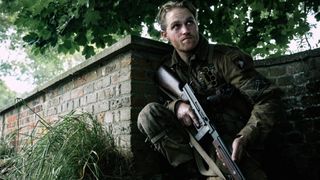
Overlord began life way back in the mid-’00s, when writer Billy Ray, who had then done Shattered Glass and Flightplan and would go on to do The Hunger Games and Captain Phillips, pitched the idea to Abrams and his Bad Robot Productions. J.J. was hooked – “It reminded me of something that Rod Serling [The Twilight Zone] might have cooked up; it was not just a mash-up of genres but also meeting these young men in this incredibly gritty, powerful, visceral state” – and Paramount swiftly came on board, with Mark L. Smith (The Revenant) brought in to polish the script.
"This just felt to me a wonderful way to tell a really scary tale"
J.J. Abrams
Fast-forward seven years and Avery’s prison-break/heist movie mashup Son of a Gun impressed Abrams and his producing partner Lindsey Weber. They met with Avery to spitball a handful of possible projects but the director was most drawn to Overlord (“It was completely bonkers, like Indiana Jones on acid”) and he proceeded to work with Weber to develop his own ideas and approach. Avery’s pitch, when presented to Abrams, landed him the gig, not so much because it was dark and twisted, but because it was rooted in character.
“My grandfather was in a campaign and I always used to look at his photo albums and listen to his stories,” says Avery. “So with Overlord, we always tried to balance the emotion and the action and the horror. We wanted to care about the characters. We wanted to love them. We wanted to be behind them as they went into hell. Because if you don’t care about the characters, then it’s all for nought. There’s no jeopardy. J.J. always talks about getting the audience to ‘lean in’. And I think the way to do that is to love your characters.”
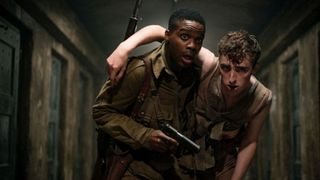
On May 17, 2017, it was announced that Wyatt Russell, Jovan Adepo, Jacob Anderson, Dominic Applewhite, Pilou Asbæk, Iain De Caestecker, John Magaro, Mathilde Ollivier and Bokeem Woodbine would all star in Overlord. The first two are very much the leads of the ensemble, with Russell playing Ford, the captain of the squad, and Adepo playing Boyce, the inexperienced soldier who’s thrown headfirst (literally – the opening plane crash and parachute plummet is phenomenal) into Operation Overlord to act as our saucered eyes and tinnitus-ringing ears.
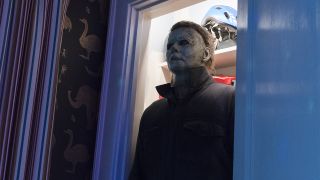
The most anticipated upcoming movies of 2018 and beyond
Both were pleasantly stunned when they read the script - “Big crazy shit happens... In the wrong hands, it could have really gone south,” says Russell; Adepo gasps, “It was twisted and intense and exciting” – and were fully committed to showing what they could do. For Russell, who’s perhaps best-known as stoner Willoughby in Richard Linklater’s Everybody Wants Some!! and who also stars in 22 Jump Street and Ingrid Goes West, that meant showing a side of himself that viewers have not before been privy to.
“I got into acting because I could play guitar and sports, and because I love comedies,” he says. “But there’s an aspect to my personality that is more like Ford. I wanted to prove that to people: the strength of a leader in a difficult situation. That is imperative to buying the story. I always thought in my head, ‘He’s like a pharmacist from Wyoming who doesn’t want to fucking be there.’ In the ’40s, we didn’t have Navy Seals. Airborne were the first guys to be a specialised force, and six months before they were working a pharmacy in Idaho. They were not killers. So Ford had been to Italy, done shit, seen bad stuff, but it was important to me that he was a real guy.”
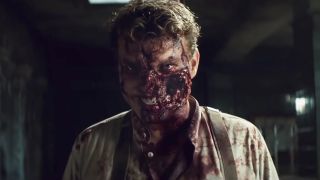
As for Adepo, the British-American actor who was born in Oxfordshire and raised in Waldorf, Maryland, and who is best-known for his work in The Leftovers and Fences, it was his job to light up the darkest of situations with soul and moral conscience. Auditioning for the role, he reduced big, bearded Avery to a puddle of tears. “I was just trying to earn the part,” Adepo laughs. “Julius had the actors do a variety of exercises in the scenes we were doing and I think they truly opened my heart up to Boyce and allowed me the freedom to explore.”
Ready for action
Boyce, Ford and all of the principal characters are put through the wringer. It starts immediately, as their plane flies over France being buffeted by Nazi anti-aircraft fire and sustaining hits until all is spinning and aflame and the soldiers must hurl themselves into the night sky to parachute through thunderous explosions. The entire scene is presented in one shot and is startlingly immersive – Saving Private Ryan in the air, if you will. Abrams laughs.
“Saving Private Ryan is certainly one of the – if not the – classic World War 2 movies,” he agrees. “This opening scene, en route to D-Day, is such a powerful, painful, horrible way into a story: these young men having that sense of feeling like they’re about to lose a lot of friends, or lose their own lives. You can’t not think of Steven’s extraordinary work in Saving Private Ryan. And yet, what I love about what Julius did, is he did something that was incredibly subjective and wholly original.”
“Saving Private Ryan is the benchmark – it has the most intense action of all time,” agrees Avery. “But I had to find my own path. I tried to do something that would be an experience for the audience, and that was to get into the head and the view of this young guy, to make the film as first-person as possible.”
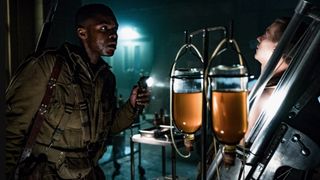
For a movie that ventures into flat-out genre territory, Overlord is intent on keeping it real wherever possible. For the scenes in the downed plane, the actors were placed in a rattling, period-perfect hull on a huge gimbal and bounced around like popping corn.
“We all got tossed about... It was long hours and incredibly hot, but fun,” says Adepo, while Russell adds, “It could tilt 30 degrees. And we were in parachutes for ten hours a day because it takes too long to take them off. Your back is fucking killing you and everyone’s sweating and smells like ass. So when those squibs start to go off and the explosions happen, it’s scary. All of the explosions and the debris flying in your face was practical stuff.”
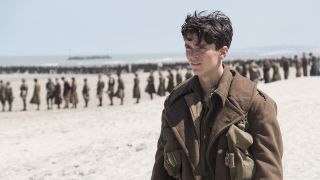
The 25 best war movies - from Dunkirk to Downfall (and everything in between)
Russell lost weight for the role in order to look like someone surviving not on hamburgers but rations, and spent months watching World War 2 documentaries to fully understand what was at stake. He and the rest of the squad were also sent to boot camp, their days spent gathering wood, making fires, going on training drills and enduring a “massive amount of weapon training”. Russell laughs. “Loading, reloading, loading, reloading, firing, loading... We could do it in our sleep. It’s the worst thing in the world when you see someone in a military movie who’s only held a weapon for three days.”
They had to be ready to handle both the gruelling shoot and the terrible sights their characters would be confronted with, for when Overlord ventures into sci-fi-horror territory, it does so full-bloodedly.
Nazi business
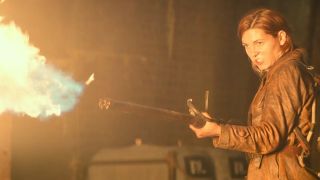
“There’s this woman without a body in the movie,” says Avery. “It’s inspired by this crazy black-and-white video that’s on the internet. If you type in ‘Russian Dog Experiment’, the first thing that pops up is this video of a decapitated dog which has been kept alive somehow. It’s pure madness. The Russians in the ’50s were doing some crazy shit. There are some really fun scares in the movie. When we tested it in front of an audience, we sat at the back of the theatre, watching the audience jump. I think J.J. instinctively likes scaring the shit out of people.”
He’s not wrong. Abrams, let’s not forget, is the producer of 2001 psycho-trucker movie Roadkill (aka Joy Ride), Stephen King-centric TV shows 11.22.63 and Castle Rock, and, of course, the Cloverfield universe. “I’ve always been a fan of horror movies, thrillers, sci-fi,” he says. “That’s something that I was completely game to be a part of. Overlord was always, in its initial conceit, something that couldn’t have been a holding-back, PG-picture. It had to have an edge.”
Hence the hard R certificate in the US, 18 in the UK. But was Abrams ever concerned about crossing a line? After all, Nazi doctors really did conduct sick experiments in World War 2, and drawing on that for entertainment could be terribly tasteless. “This is a movie where it’s Nazis working to create the thousand-year army,” he says. “Their experiments are all on their own soldiers. Plus, what they’re doing is clearly supernatural... not within the realms of what’s medically true.”
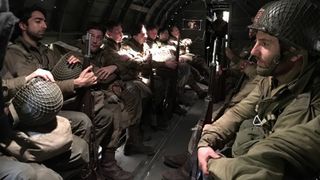
“The idea in this was to say that the Nazis are experimenting with something that is a genre storyline, that is not of this Earth. It’s a thing that gives the movie licence to tell a story that is not about any kind of war crimes or anything that is factual, but more about a mad doctor doing mad experiments on his own men. We never, of course, wanted to cross the line into something that felt like it was going into anything true to life, because that would be disgusting.”
“Listen, we started off the movie with Operation Overlord [the Allied codename for the Battle of Normandy], which is a great jumping off point, but beyond that, everything is fictional,” says Avery. And judging from the response of test audiences, who regularly jumped out of their seats and enjoyed Overlord as a Friday night thrill-ride, they got the balance right. “I looked over at J.J., and he had this huge grin on his face,” chuckles Avery, and today we can feel that same joy buzzing down the line from Abrams as he prepares to go back to directing Star Wars 9.
“To me, the thing about Overlord is that it is a really tense, human, terrifying, twist-and-turn adventure,” Abrams says. “What I loved about the story that Billy Ray pitched was that it felt like a story about characters that I would really care about, going through something that was undeniably desperate and shockingly horrific. And it’s not about saving your own ass; it’s about something much bigger; having characters that feel relatable, thrown into something that is larger than life. Those are the kind of stories I love.”
This feature original appeared in our sister publication, Total Film magazine. Pick up the latest copy now or subscribe so you never miss an issue.
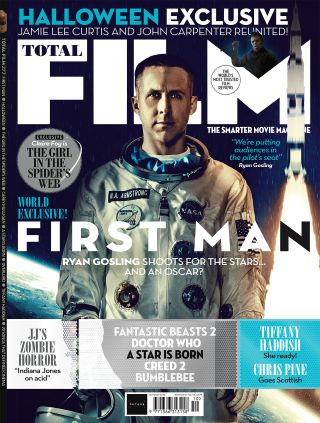
Jamie Graham is the Editor-at-Large of Total Film magazine. You'll likely find them around these parts reviewing the biggest films on the planet and speaking to some of the biggest stars in the business – that's just what Jamie does. Jamie has also written for outlets like SFX and the Sunday Times Culture, and appeared on podcasts exploring the wondrous worlds of occult and horror.
Most Popular






